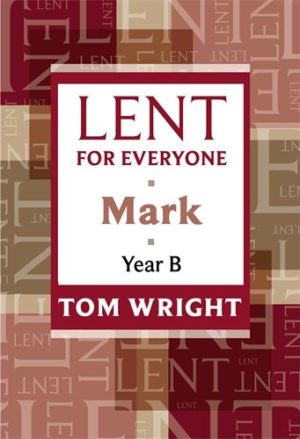



One sabbath, Jesus was walking through the cornfields. His disciples made their way along, plucking corn as they went. ‘Look here,’ said the Pharisees to him, ‘why are they doing something illegal on the sabbath?’ ‘Haven’t you ever read what David did,’ replied Jesus, ‘when he was in difficulties, and he and his men got hungry? He went into God’s house (this was when Abiathar was high priest), and ate the “bread of the presence”, which only the priests were allowed to eat – and he gave it to the people with him. ‘The sabbath was made for humans,’ he said, ‘not humans for the sabbath.’
I have often used, as an illustration, the way in which signposts work. A signpost tells you not where you are at the moment, but where you are going to. You don’t put a sign (I have often said) saying ‘This Way to London’ in Piccadilly Circus, or ‘This Way to New York’ in Times Square. The point should be obvious: when you arrive at your destination, you don’t need signposts any more.
Since moving to Scotland, I have discovered a striking exception to my rule. We live near the tiny village of Kilconquhar. Right in the centre of the village, near the church and opposite the pub, is a milestone telling you how far it is to various other towns. But at the top of the milestone, to my astonishment and amusement, it says, ‘Kil’r 0’. No miles to Kilconquhar. Zero. You’re there already. Was it a joke? Did someone put it there in case of very thick fog, in which case some muddled travellers might be glad to know not just where they were going, but where they already were? It’s hard to say.
The point about the sabbath controversies in the gospels, of which this is one of the most famous ones, is that for the Jews the sabbath wasn’t simply a day of rest at the end of each week. The sabbath institution formed a great long line of signposts, from the earliest days of creation and covenant right on through, pointing forwards to the time when God would give ‘rest’ to his people once and for all. Sabbaths were markers on the road, signs pointing ahead.
And Jesus had come to announce that the time was fulfilled (1.15). That’s why, as we recall, his disciples did not fast. They had stopped commemorating the sadnesses of the old world; they were celebrating the joys of the new one. They weren’t putting up any more signposts, pointing away into the future; God’s future had arrived in the present.
Easter is an especially good moment to consider this. Holy Saturday, the Jewish sabbath, was the time of preparation for the new creation that was about to burst forth. Once you have Easter Day, you can never go back to signposts. The old has gone, the new has arrived. That’s why, of course, the earliest Christians met on Sundays (though they never spoke of this as a new sabbath; that would have made all the wrong points).
That is what lies underneath this discussion, and others like it. Some have objected that the Pharisees were a strict sect who would hardly spend their time hanging around Galilean cornfields on the off chance of finding people breaking the sabbath. But there are two answers to this. First, we know from some contemporary sources that there were many Pharisees who in fact did make it their business to police, unofficially but powerfully, the major symbols of Jewish identity. Second, today’s self-appointed guardians of public morality (I mean journalists, of course) may well not go and wait with their long-lens cameras to catch ordinary mortals up to no good. But if someone is famous, royal, a celebrity – well, they will cross land and sea to take a single photograph. Jesus was acquiring a reputation as a reformer, and more than a reformer. There is every reason to suppose that people who valued strict observance of ancestral traditions would do their best to see whether he was keeping them or not.
As usual, there are other dimensions to the story as well. The claim of Jesus to be ‘fulfilling the time’ is part of his larger claim – made by implication here and all over the place – to be Israel’s true king. As such, he’s in an odd position, of course, since the present authorities don’t see him like that. But Jesus refers them to a passage of scripture in which King David himself, who had already been anointed but had not yet been enthroned as king, was on the run from Saul. David was already sovereign over Israel’s institutions, in this case the rules governing the holy Tabernacle (the forerunner of the Temple). Jesus was claiming that he was now sovereign over the institutions, too, partly because he was ‘the son of man’, Israel’s representative, the one who would receive authority in the end (Daniel 7), and partly because, as such, he was ushering in the new day. The journey was over; the signposts were no longer needed. Easter is like that. Time to leave behind the old life, and launch out on the new one.
Today
Show us, Lord of all wisdom, where we are clinging to the old signposts when you are leading us forwards to the goal.